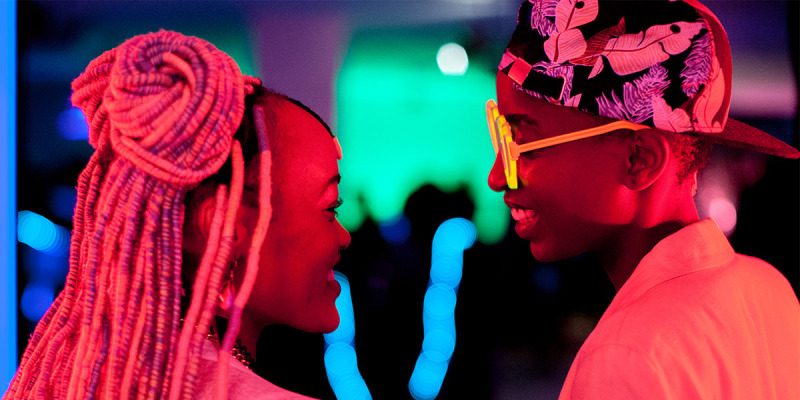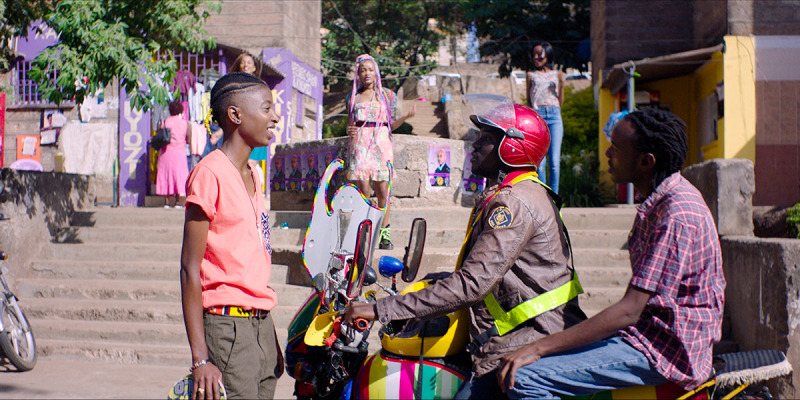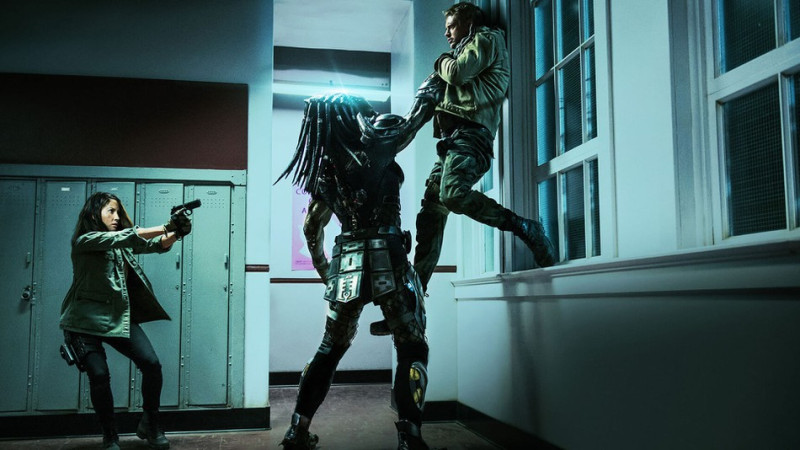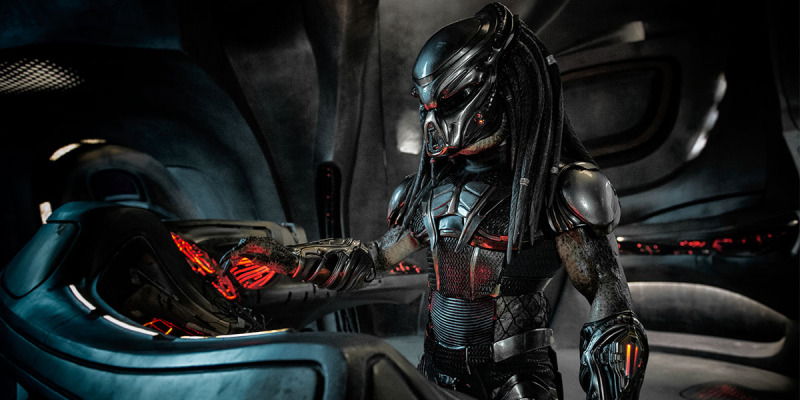Opening weekend at the Toronto International Film Festival (now in its 43rd year) is all about the glitz and glamour, about celebrities and parties and red carpets and awards season buzz. The festival front-loads its first weekend with world premieres it has wrestled away from other fall fests (this year, new films from Claire Denis and Barry Jenkins are a big deal, but you won’t be seeing Yorgos Lanthimos or Luca Guadagnino in Toronto). For its opening night film, Toronto has tried a number of different things over the years, from promoting homegrown Canadian productions to documentaries tackling import social issues, and—lately—star-studded Hollywood affairs. Generally, these films are forgettable, and I make a point of never going to see them. This year, all the buzz is about Outlaw King and Chris Pine(’s penis). That’s probably the most enticing opening night TIFF has offered in a while, but I still decided to pass.

On opening night, I always make a point of finding something smaller, off the beaten path (i.e. red carpet). TIFF is quite literally a festival for everyone, the largest public film festival in the world; and while opening night is all about the stars, if you’re adventurous or curious, the festival offers a wide array of choices to satisfy any cinephile. This year, I sought out Rafiki, or Friend, the new film from Wanuri Kahiu. It stood out in the Cannes lineup earlier this spring for being the first Kenyan film ever to be selected there. Toronto secured its North American premiere, and a lesbian drama, directed by a woman, and set in Nairobi, is exactly where I want to be right now. The TIFF Group promotes diversity as part of its year-round activities, and the festival is obviously its biggest platform.
Seeking out new voices, particularly voices from parts of the world I’ve never seen a movie from before, is part of what makes a film festival so enjoyable and memorable. This is what I’m looking for in cinema right now; this is what excites me as a moviegoer (no offense to Chris Pine, or his penis).
Rafiki immediately reminded me of this year’s Skate Kitchen, if only because it begins with Kena (Samantha Mugatsia) riding around on a skateboard, set to some upbeat dance music. But it also does something identical to Moselle’s film with its editing. Perhaps it’s a coincidence, perhaps great minds think alike, but both films are exceptional at capturing the vulnerability and intimacy of friendships and romances, and do this specifically by desynchronizing the audio track from the images. They also play loosely with shot selection, re-arranging scenes into impressionistic, non-linear passages.
This occurs most pointedly in Rafiki when Kena and Ziki (Sheila Munyiva) make love for the first time in the back of a van, and images of them embracing are juggled with images of them eating a cupcake. The women in these films experience time in a more circular way; which is to say, time seems to emanate in various directions, instead of in a straight line. Time surrenders to pleasure, or they transcend it through each other. I feel like I’m just scratching the surface here of something that will require more thought and study, but for now, I will say these have been some of the most tender and beautiful scenes I’ve seen in movies all year.

Kahiu was in attendance to introduce the film and answer questions afterwards. Audience Q&As can be pretty hit or miss, but sometimes they can get a good conversation going, and that was the case with Rafiki‘s Q&A. The conversation ranged from censorship in the arts (Rafiki is banned in Kenya, apparently not because two women kiss, but because the ending is too hopeful), to the experiences of LGBTQ people in Kenya and the support and resources available to them, to the process of decolonization, and the way these topics and challenges intersect (current attitudes regarding homosexuality in Africa being a direct result of Western colonialism). It was an informative and inspirational discussion, full of hope for the future—just like the film itself—and I couldn’t think of a better way to kick off TIFF 2018. Also, Kahiu wants to develop a science-fiction feature next; can I just go ahead a buy a ticket now?
As I said earlier, I typically avoid the red carpet premieres; and I also typically avoid anything that is opening soon after or even during the festival. Another big premiere here is Michael Moore’s new documentary, Fahrenheit 11/9. It opens later this month, and I’m happy to wait. But there was one film that fell into both categories that I couldn’t resist. Shane Black’s The Predator opens next week, before the festival itself concludes, but TIFF is hosting the world premiere. Specifically, Midnight Madness is hosting. The Midnight Madness program screens a new movie each night of the festival, at 11:59pm, showcasing the best—or at least bloodiest—in genre filmmaking, largely focusing on horror, but with generous helpings of comedy and action also thrown into the mix. It’s rare that the red carpet rolls out at a Madness screening, and rarer still that a major film from a major studio, like a new Predator from 20th Century Fox, would actually show up at midnight for its world premiere. I didn’t want to miss it.

But, in retrospect, I could have. The Predator is in desperate need of a director’s cut, or any kind of alternative cut, to salvage whatever Shane Black was trying to do. But it’s also possible this project was misguided from inception and couldn’t be saved. The film I watched was a sloppy, haphazardly assembled action comedy, sometimes genuinely funny and thrilling but just as often utterly incompetent. The Predator is a deliberately, gleefully silly movie. Some will take issue with Black’s approach, I’m sure, but I don’t think there’s a problem with tone.
Rather, Black stumbles when he tries to flesh out the lore, falling into the obvious trap of developing answers to questions that never needed them. And the answers grow increasingly nonsensical, and stupid, as the film goes on. The Predator starts out novel enough, as the human characters stumble upon Predator technology, try to figure out how it works, and get into a lot of trouble along the way. Black has fun recontextualizing familiar concepts and throwing around self-referential winks but fails to focus this stuff into anything worthwhile.
The cast is uniformly entertaining and try their best to make the film work. I was particularly surprised to see Trevante Rhodes, who made a huge impression in Moonlight, and if that’s the only role you know him for, like I did, his casting here generates some killer whiplash. Rhodes and the other actors, including Thomas Jane and Keegan-Michael Key, play soldiers who bond in group therapy sessions. It’s an amusing inversion of the original film’s cast.
The women, unfortunately, don’t get much to do. Yvonne Strahovski is the first to grab a gun, ready for action, but is literally told to stay home. Olivia Munn is a competent and capable scientist, but spends much of the movie shooting herself in the foot, or sharing exposition duties with the film’s human antagonist, played by Sterling K. Brown. I won’t spoil the film’s many plot revelations; needless to say, there’s a charitable reading that Munn and Brown’s characters are functionally pulling shit out of their asses and operating on the basis of a working hypothesis, but the film seems content to roll with all of that information, all the way up to its ridiculous coda. Brown at least gets a lot of good lines and zingers, and clearly relishes his role. Munn, alas, gets to sit behind a rock and reiterate information for the audience, like explaining at one point that a “time advantage” means a Predator is going to give them a head start. Thanks, Legolas.

The Predator is clearly stuck somewhere between a Shane Black film and a studio franchise release, not unlike Iron Man 3, which was dramatically hamstrung by the studio decision to swap Stark’s alcoholism with PTSD (something both of these films share, specifically, is a poor understanding of mental health and illness). But sometimes it’s hard to tell what was compromised, or what was just poorly executed, or if there’s even a real difference. Some of the action is sharp, but sometimes it’s cut to ribbons; sometimes the movie moves as ruthlessly as its alien characters, sometimes it can’t even figure out how to make one image flow into the next.
I’ve seen three of Black’s films as a director, and would probably rank this last, with The Nice Guys being far and away the best of three, and Iron Man 3, which still manages to be a clever and subversive comic book film, in the middle. The Predator, for all of its ambition, never seems to figure out where it’s going. By the time the coda is setting up the foundation for a sequel, the Predator’s actions on Earth have become almost entirely incoherent; did it even know what the hell it was trying to do here? Did anybody when they were making this film?
For more on The Predator, check back here next weekend, when the film opens in theatres, for FilmEra’s official review from my fellow writer, Jacob Watson.
And for more on TIFF, check back all throughout the week for more reviews and festival coverage from yours truly. Coming up, I’ll be diving into some short films and the latest offerings from the world of the avant-garde, and cover the world premieres of new films from Claire Denis, Mia Hansen-Løve, Apichatpong Weerasethakul, and more.
The 43rd Toronto International Film Festival runs from September 6th to 16th, 2018.

One comment